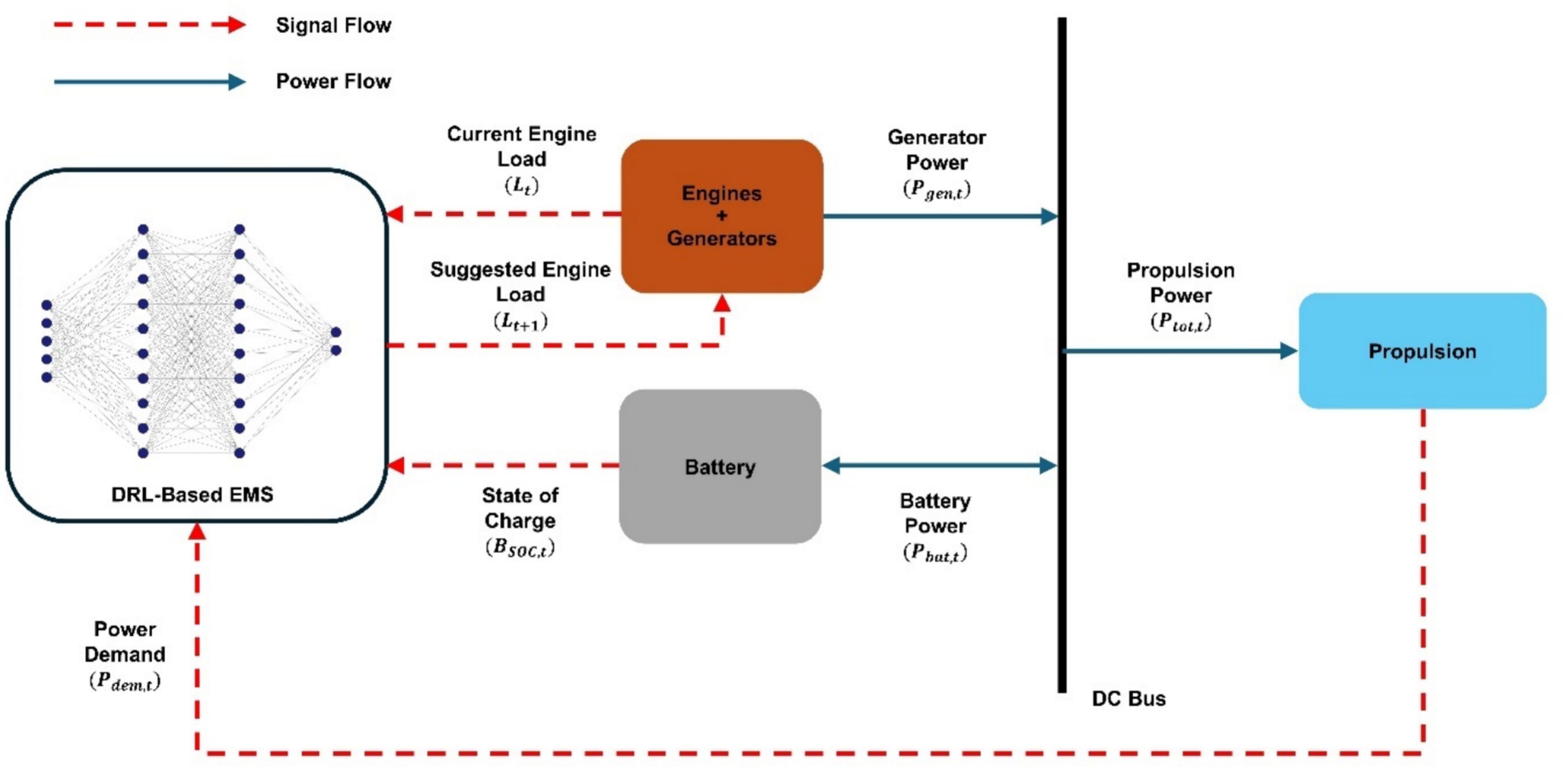Deep Reinforcement Learning for Methane Slip Reduction in Hybrid‑Powered Liquefied Natural Gas Marine Vessels
Sustainable Energy Technologies and Assessments,
Ahmed Abdalla, Patrick Kirchen, and R. Bhushan Gopaluni
[PDF]

Click to enlarge image.
Abstract
Hybrid-powered liquefied natural gas (LNG) vessels offer a viable pathway for reducing greenhouse gas (GHG) emissions in maritime transport by lowering CO2 emissions. However, these benefits can be offset by CH4 emissions, which are typically highest at low engine loads due to methane slip. Efficient engine operation is therefore essential for achieving overall GHG reductions. Using a hybrid LNG-battery powertrain provides additional degrees of freedom to modify the operation and mitigate GHG emissions; however, the optimal power allocation between the LNG engine and the battery system must be developed specifically to the operation of the vessel. This paper investigates the use of three deep reinforcement learning (DRL) algorithms, namely twin delayed deep deterministic policy gradient, soft actor-critic, and proximal policy optimization, to develop intelligent energy management systems (EMSs) for hybrid-powered LNG vessels. The proposed DRL-based EMSs aim to minimize cumulative GHG emissions from sailing trips by optimizing power allocation between the powertrain components. The proposed strategies are evaluated against the peak shaving and load levelling (PS-LL) EMS currently used on the vessel under study. The DRL-based EMSs reduced GHG emissions by up to 14.6% more effectively than the PS-LL EMS, when compared to a baseline of operations simulated without hybridization and measured relative to an offline optimization benchmark. This improvement is primarily due to better engine load management, which reduces methane slip.
Read or Download: PDF